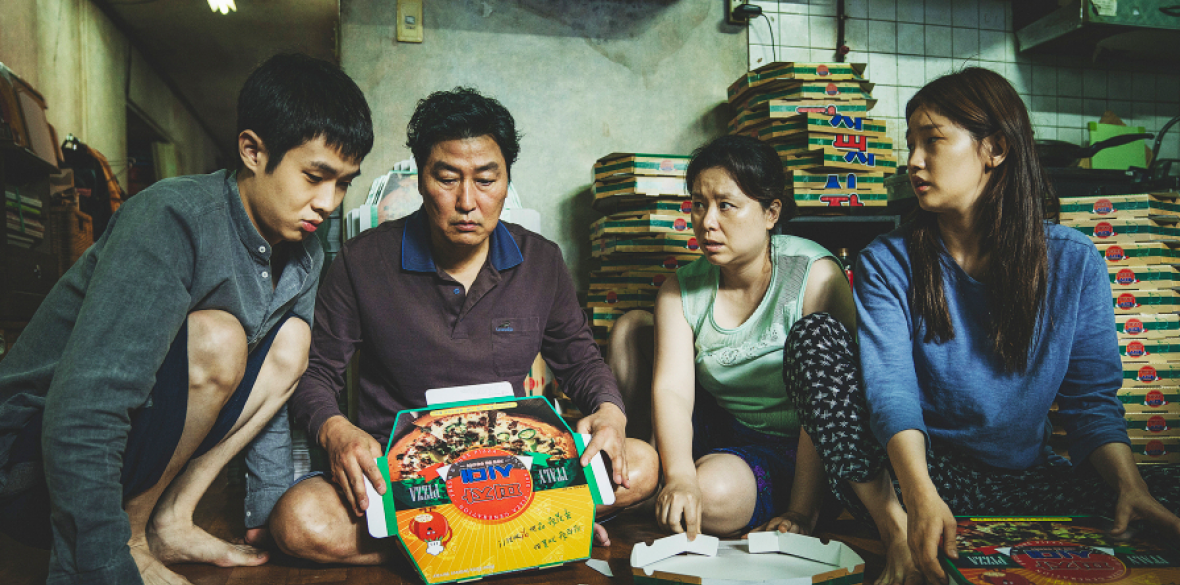This is the last article you can read this month
You can read more article this month
You can read more articles this month
Sorry your limit is up for this month
Reset on:
Please help support the Morning Star by subscribing here
WITH a focus on poverty and social inequality, Bong Joon Ho’s darkly satirical thriller Parasite carried off the top Palme d’Or prize in Cannes.
It follows the daily battle of a poor family in Seoul today as they scurry around their squalid basement flat and try to earn money with humiliating jobs.
Their situation starts to improve when they begin working for a rich household but when another poor family appears on the scene, a ferocious war among the have-nots begins. Parasite was certainly the best film in competition, demonstrating that Joon Ho is a major talent.
The Grand Prix went to Mati Diop — the first black female film-maker in the competition — for her debut feature Atlantic. It homes in on a seldom seen side of Europe’s refugee crisis through the eyes of a woman abandoned by the man she loves when he decides to attempt an illegal crossing.
It’s a superb and audacious film from a director to watch.
Best Actress went to Little Joe’s leading lady Emily Beecham who plays a scientist beginning to suspect that the plant she has genetically modified may have adverse side effects, in a film tackling the recklessness of uncontrolled pharmaceutical research and the malign impact it can have.
Antonio Banderas won Best Actor for his performance in Pedro Almodovar’s Pain and Glory, a complex and absorbing fiction based on the Spanish director’s life, while the Jury Prize was shared by two highly political features.
Ladj Ly’s Les Miserables tackles police brutality in an impoverished Paris suburb, while in Juliano Dornelles and Kleber Mendonca Filho’s Bacurau, a film-maker travels to a village in the interior of Brazil to make a documentary, where he discover that the locals are not exactly what they appear to be and hide dangerous secrets.
Former Palme d’Or winners Jean-Pierre and Luc Dardenne won the Best Director award for Young Ahmed, the portrait of a Muslim teenager living in modern Belgium who attempts to kill his teacher after being brainwashed by a radical imam, while French director Celine Sciamma earned the screenplay award for Portrait of a Lady on Fire, a lesbian-themed period film that explores the notion of the female gaze both today and throughout the history of Western art.
Last but certainly not least, the “Special Mention” award went to Palestinian director Elia Suleiman for his beautifully poetic and poignant It Must Be Heaven, in which the film-maker follows his alter ego ES as he decides to leave his country in search of a new home.
Yet however far he travels from Paris to New York, his homeland follows him like a shadow. The promise of a new life is transformed into a comedy of the absurd in what’s a very modern and tragi-comic take on the Palestine situation.











